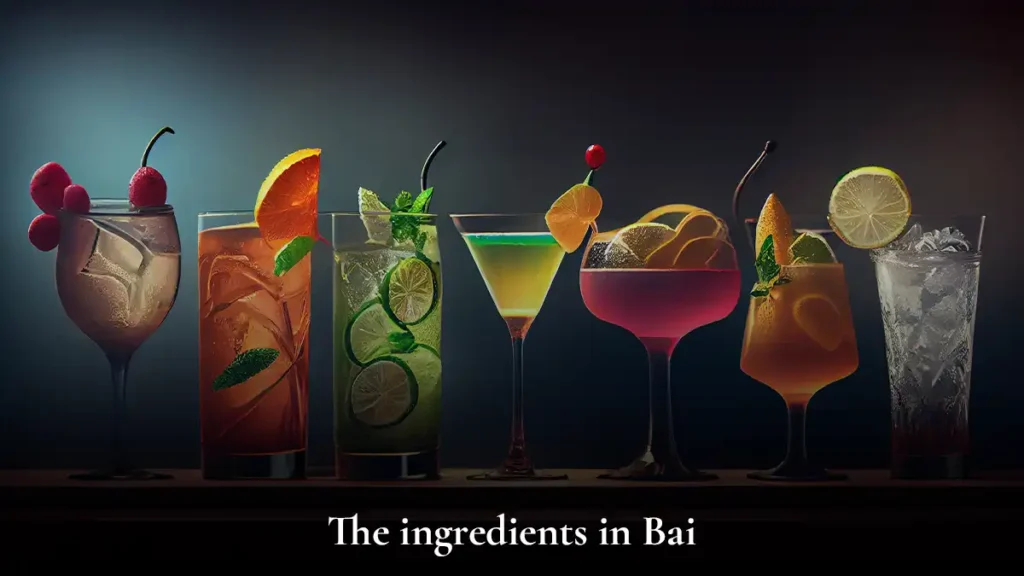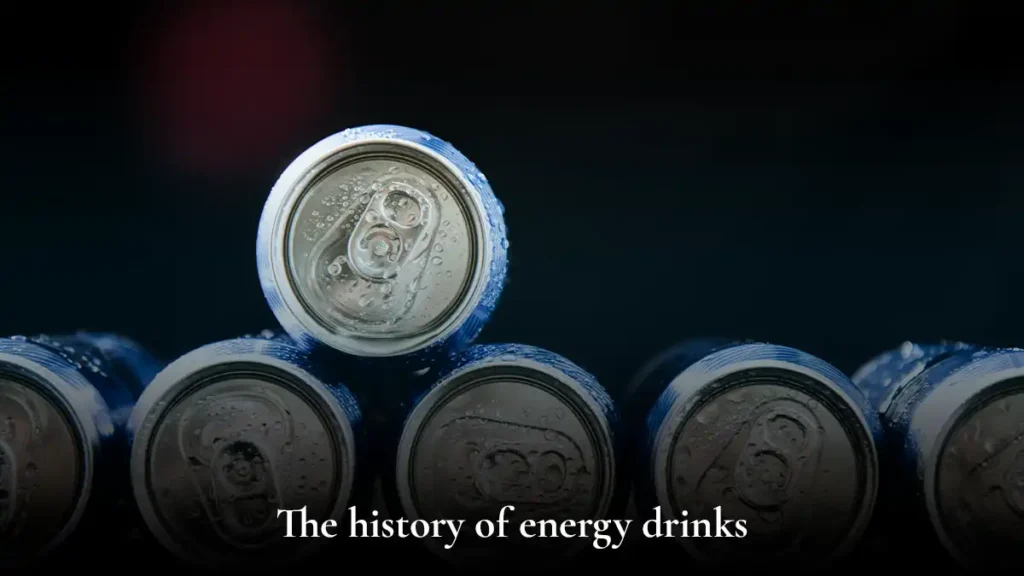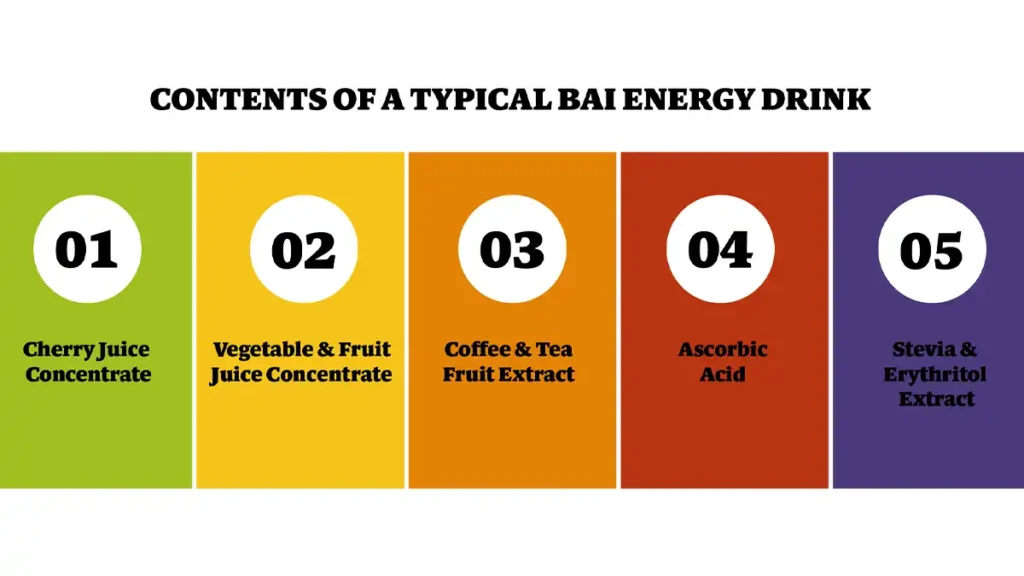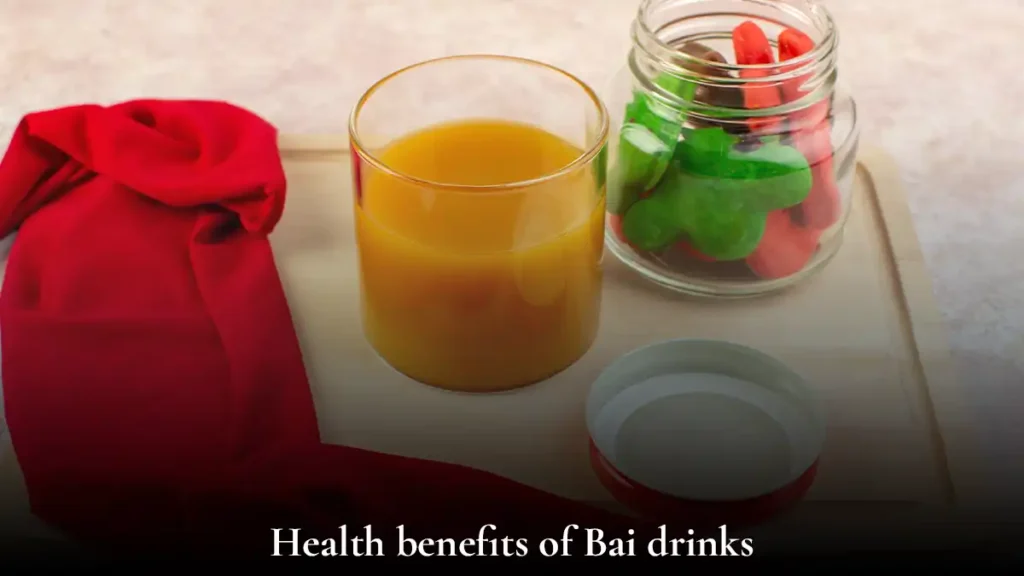Youngsters and adolescents are the most prominent patrons of energy drinks that have become a global phenomenon since the 1990s. Bai is a recent addition to the long list of energy drinks made famous by international brands like Red Bull, Monster, and 5-hour Energy. Within a short time, Bai has become quite popular among people of all ages. According to the claims of the energy drink manufacturer, Bai is immensely rich in antioxidants along with other health-aiding nutrition. The beverage uses Stevia as an artificial sweetener, and together with zinc, electrolytes Vitamin C, and Vitamin E helps to strengthen the immune system besides boosting energy and overall health. In this article, we will focus not only on the health benefits of energy drinks but also seek an answer to the oft-asked question – are Bai drinks good for weight loss?
Are Bai drinks good for weight loss?


Despite tasting sweet, Bai is a healthy alternative to other energy drinks that contain sugar and calories. The sweetness of Bai comes from Stevia, an herbal ingredient that acts as an alternative to artificial sugar, which can affect health adversely. Grown extensively in Brazil and Paraguay, the active ingredients in Stevia include steviol glycosides, which are about 50 to 300 times sweeter than sugar. Therefore, the absence of sugar, mainly responsible for increasing weight, is why Bai is a suitable alternative to other energy drinks for managing body weight. You can depend on Bai to achieve your healthy weight management program goals by avoiding weight increases. However, whether energy drinks like Bai help people lose weight is not easy to answer because of insufficient evidence. However, the energy-boosting properties of Bai are very much visible, along with other health benefits.
The ingredients in Bai


Energy drinks can increase your alertness by stimulating brain function and even improve concentration. Each energy drink is unique because of its formulation, and Bai is no exception. Bai has excellent taste and is available in a dozen flavors to attract people with diverse taste needs. Packed with a high amount of antioxidants, the other ingredients of Bai include electrolytes, Zinc, Vitamins C and E, and Stevia. The least sugar, calories, and caffeine in Bai ensures that you feel energetic and stay hydrated throughout the day without feeling bloated.
The amount of Caffeine in the beverage contributes to the drink’s efficacy, and the simple rule is that a higher concentration of Caffeine translates into a higher level of energy. The average Caffeine content in a 16 oz energy drink pack ranges between 142 and 160 mg. Only 5-Hour Energy has an extremely high caffeine content, and a 1.93 oz drink pack contains 200 mg of caffeine.
Bai has more nutrients than Caffeine.
As the name suggests, energy drinks are indeed fountains of energy, but many of these, including Bai, are also very rich in nutrients, which turn them into health drinks. Bai supplies moderate energy as each bottle contains about 45 to 55 mg of Caffeine, which is almost similar to Red Bull’s. However, Bai helps to augment the immune system with the help of a combination of Zinc, vitamins, and electrolytes. Supporting a healthy immune system means Bai can significantly help people stay healthy by building a more robust immune defense against diseases. The added supply of nutrients and ant-oxidants from Bai is good for your health.
The history of energy drinks


People have known about energy drinks for centuries, but the modern-day energy drink came into being after World War II. Therefore, the new energy drink launched in Japan in 1962 was a pharmaceutical product containing herbal ingredients. Lipovitan D was available in minibar-sized bottles and was an energizing drink meant for factory workers and truck drivers who worked long hours that stretched into night shifts.
At a glance, Lipovatin D resembled traditional cough syrup in terms of taste and smell but was marketed as a drink to enhance mental and physical functions. Taurine was the main ingredient of the tonic, which is present in the famous energy drink Red Bull.
In 1976, Krating Daeng, an energy drink, entered the Japanese market 1976 and soon gained immense popularity among professionals and executives. The primary ingredients of the energy drink were taurine, caffeine, and vitamin B.
Energy drinks reach the Western world.
Today, energy drinks are available in plenty across almost all the countries in the world. However, the globalization of energy drinks has a history that only a few know about. Let’s have a look at the evolution of the modern-day energy drink.
Until the 1980s, energy drinks mainly remained confined to Asia and were not commercially available in the Western world. In 1984, an Austrian businessman visiting Bangkok, Dietrich Mateschiz came across Krating Daeng and instantly realized its business potential. The fantastic effects of the tonic left him in awe, and he wasted no time striking a deal with the maker of Krating Daeng to introduce the drink under the brand name Red Bull in Europe.
Red Bull took Europe by storm, and the drink became a sensation almost overnight. The combination of taurine, caffeine, and carbonation worked wonders for the drink, whose popularity reached unprecedented levels. Mateschiz’s fantastic business acumen and entrepreneurship helped the sensational energy drink reach the shores of America in 1997. Mateschiz single-handedly turned energy drinks into a global phenomenon.
Bai flavors
Bai energy drink is available in twelve flavors –Brasilia Blueberry, Raspberry Lemon Lime, Zambia Bing Cherry, Molokai Coconut, Pilavo Pineapple Mango, Kula Watermelon, Puna Coconut Pineapple, Sao Paolo Strawberry Lemonade, Madagascar Coconut Mango, Kupang Strawberry Kiwi, Costa Rica Clementine, and Malawi Mango. The mention of countries and places in the flavors’ names underscores the energy drink’s international appeal.
Here is a snapshot of the CONTENTS OF A TYPICAL BAI ENERGY DRINK.


Brasilia Blueberry
The refreshing energy drink is a fusion of blueberry, blackberry, and strawberry flavors, but the blueberry flavor is the most dominant, hence the name. The sugar content in the drink is almost negligible, and the sweetness comes from the natural ingredient Stevia. Therefore, you need not think twice when you pick Bai as your choice of energy drink that supports good health.
Each serving of the drink contains ten units of calories, 10 mg each of Sodium and Potassium, 12 grams of total carbohydrates, 1 gram of sugar, 10 grams of Erythritol, and 13.5 grams of Vitamin C.
In addition, 100 mg of polyphenols are obtained from coffee and tea extract and 55 mg of caffeine.
The ingredients include Cherry juice concentrate, Tea and Coffee fruit extract, vegetable and fruit juice concentrate, stevia and erythritol extract, and ascorbic acid.
- Cherry Juice concentrate – Blueberry juice concentrate extracted from the fruit is the main ingredient of the Brasilia Blueberry beverage.
- Vegetable and fruit juice concentrate – Concentrates obtained from strawberry and blackberry juice provide natural colors to the drink.
- Coffee and tea fruit extract – Extracts from coffee and tea contain antioxidants and polyphenols that shield the body from oxidative stress.
- Ascorbic acid – Ascorbic acid is a vitamin C that helps boost the immune system.
- Stevia and erythritol extract – Both erythritol and stevia are natural sweeteners with zero calories and provide adequate sweetness without raising blood sugar levels.
All Bai drinks contain the same ingredients, but the flavors differ, as evident from the names.
Health benefits of Bai drinks


Keeping aside the contentious weight loss issue, it is accepted that Bai drinks are a healthy choice and a source of energy. You can slog out extensively by regularly gulping a few drink bottles and never feel fatigued.
Here are some of the most prominent health benefits of the Bai energy drink.
Protection from diseases
Plenty of antioxidants in Bai obtained from coffee beans are a great source of health. The pulp surrounding the coffee beans is a rich source of antioxidants that effectively fight free radicals. In addition, antioxidants are also available from white tea extract and provide similar benefits. Research shows that antioxidants protect the body from internal damage by reducing oxidative stress. Antioxidants play a vital role in combating free radicals to ensure better health by stalling premature aging and protecting from diseases like heart disease, cancer, and arthritis. Vitamin C in Bai creates a more robust immune system.
Calorie control
The most striking aspect of Bai drink is the absence of artificial sweeteners and preservatives. Since artificial sweeteners are laboratory products, there are adverse health outcomes when you consume products that contain artificial sugar. Sugary beverages are dangerous because they can increase the risk of metabolic diseases. However, the problem does not arise for Bai drinks with significantly low calorie and sugar content.
Since Bai drinks use erythritol and stevia leaf extract as sweeteners, there are no chances of any adverse health outcomes. Erythritol is a natural sugar that yields only 0.24 kcal per 1 mg, whereas artificial sugar yields 4 kcal per milligram. The sweeteners used in Bai drinks ensure sufficient sweetness without harming health as they have no calorific implications.
Hydration
Keeping the body hydrated by maintaining proper fluid levels is extremely important to allow the body’s organs to function satisfactorily and stay healthy. Water keeps our body hydrated, but often, it is necessary to supplement the water content in the body by consuming Bai energy drinks that support hydration. Proper hydration helps regulate the body temperature, prevent infections, keep the joints lubricated, properly function the organs, and deliver nutrients to the cells. Moreover, proper hydration improves mood, cognition, and sleep quality. The electrolytes like Sodium, Potassium, and Calcium in Bai drinks keep the body hydrated.
How much Bai drinks should you consume?


Youngsters consider energy drinks as dietary supplements and tend to consume a lot daily. Despite the health benefits of Bai drinks, you should know how much to consume each day to stay healthy without any adverse effects. Although energy drinks offer quick mental and physical fixes, it is not wise to assume that all of them are safe when consumed in excess. Therefore, you should know the safe limits of energy drinks to maximize the health benefits. Since energy drinks are outside any regulatory framework, the onus of health is on consumers. You must carefully check the label of any drink to understand if it is safe for you. Primarily focus on caffeine, a staple ingredient of any energy drink.
Consuming caffeine in limited amounts is permissible because caffeine is a significant source of energy that rejuvenates the body and mind. To avoid any harmful effects of caffeine, stay within the low-risk level of consuming 400 mg daily, provided you are generally healthy. However, this does not apply to those with heart disease and children. Each serving of energy drinks usually has about 6 to 242 mg of caffeine, and you can work out the number of bottles or cans to consume per day by looking at the caffeine content of the drink you choose. As each Bai drink has a maximum caffeine content of 55 mg, you can safely consume 7-8 bottles of the drink per day. Excessive caffeine consumption disturbs sleep and increases blood pressure while causing stress.
Weight loss with energy drinks
One of the reasons for the massive popularity of energy drinks is that many people consider these effective for weight control. There is a connection between weight loss and energy drinks, although health experts warn about consuming too much to lose weight quickly. Indeed, energy drinks enhance metabolism to facilitate better absorption of nutrients by the body and burn calories but only slightly. On average, energy drinks can burn about 100 calories daily, which is too little for achieving rapid weight loss. Moreover, caffeine intake is directly linked to weight loss; the moment you stop taking caffeine, it affects your metabolism.
Moreover, it is also not clear whether increased metabolism alone helps in losing weight because there are chances that caffeine, too, can pull down weight. The initial weight loss could be due to the diuretic properties of caffeine, which reduces the body’s water level. Losing some weight due to regular consumption of energy drinks is quite possible, but it would be too much simplification to state that the drinks can help people lose weight. “Are Bai drinks good for weight loss?” can be a perplexing question because of the lack of conclusive scientific evidence to support the claim. Therefore, individuals should decide whether to continue with Bai energy drinks to fulfill their weight loss goals based on their experience with the drinks. Theoretically, Bai should help lose weight as it contains minimal added sugar, the ingredient responsible for increasing weight. Since weight loss depends on various factors, overreliance on energy drinks to reduce weight can sometimes be disappointing. Instead, taking a holistic approach to weight reduction by exercising, dieting, and having good sleep should work well for most people.


Leave a Reply